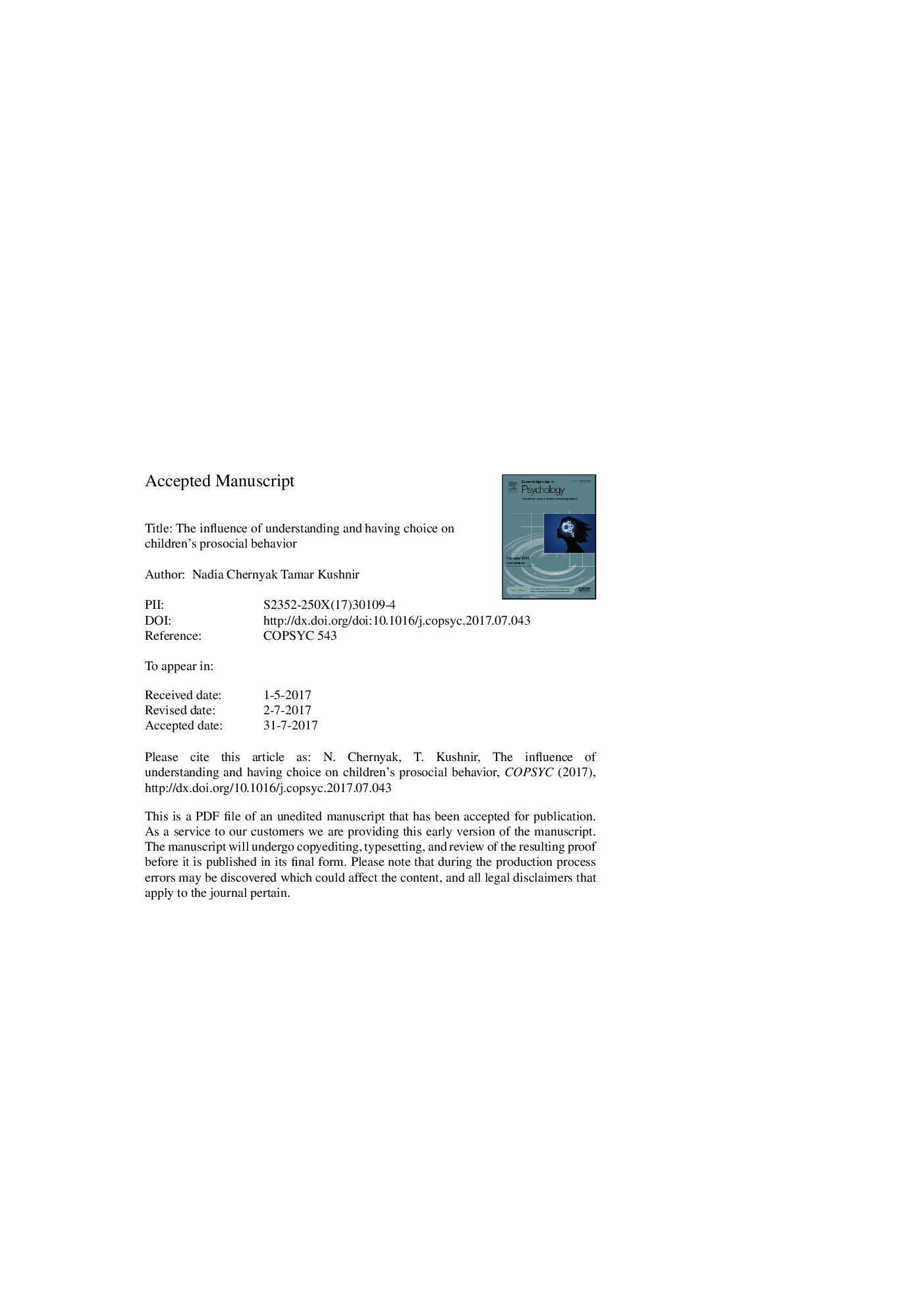| Article ID | Journal | Published Year | Pages | File Type |
|---|---|---|---|---|
| 5033395 | Current Opinion in Psychology | 2018 | 10 Pages |
Abstract
Humans are remarkable moral evaluators. However, between infancy and the preschool-age, children move from merely evaluating the world in terms of moral (“good”/“bad”) terms to acting upon it in meaningful (prosocial and antisocial) ways. We argue that children's developing understanding and experience of choice and agency has profound behavioral consequences for this development in prosocial behavior. During the preschool age, children begin to explicitly reflect on their own actions and alternative actions (i.e., actions not taken), which then in turn help them make sense of the extent to which their prosocial behavior is costly, freely chosen, and internally motivated. We review the progression and developmental antecedents of children's beliefs about choice and agency as well as recent evidence for how children's social contexts may imbue them with a sense of choice and agency over their moral actions. We argue that the preschool period may be a particularly sensitive developmental time window during which children are sensitive to input regarding their own agency.
Related Topics
Social Sciences and Humanities
Psychology
Applied Psychology
Authors
Nadia Chernyak, Tamar Kushnir,
